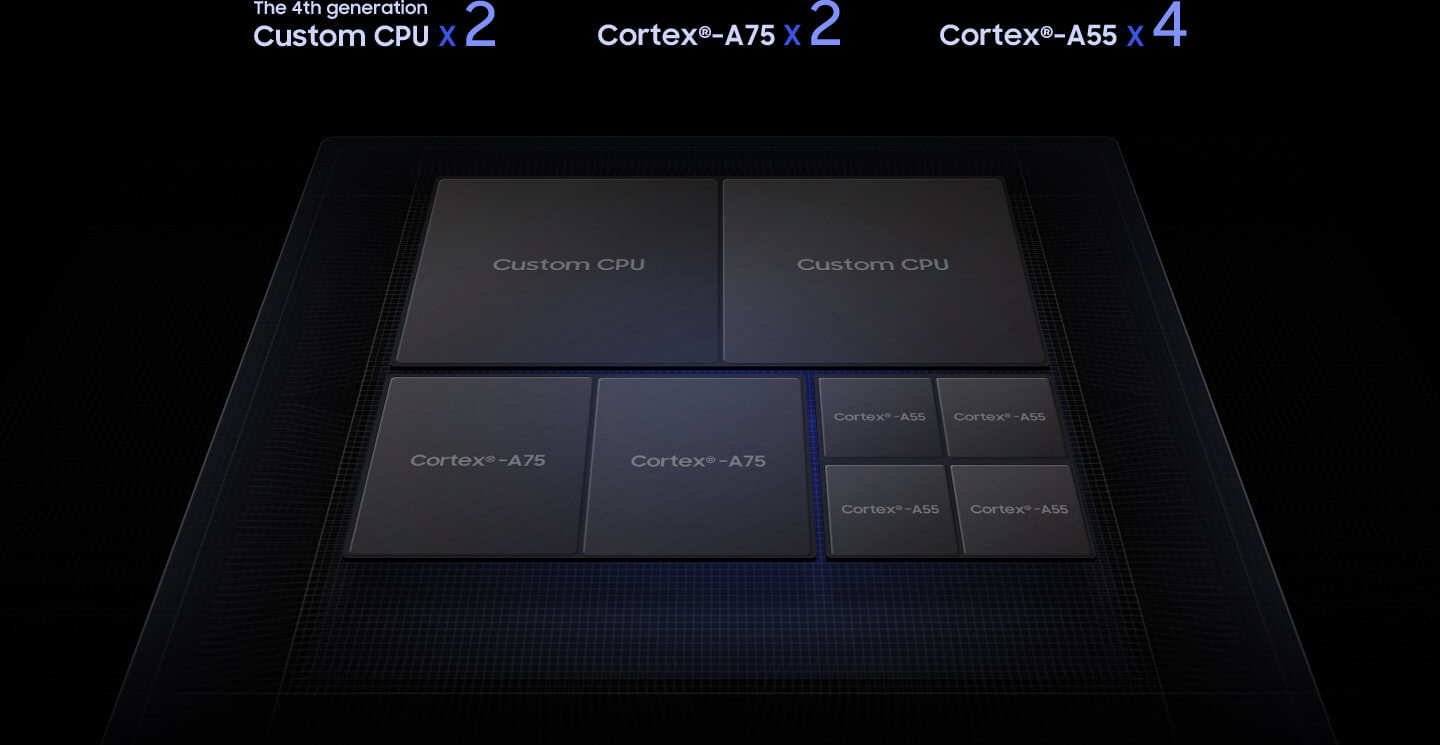Something to look forward to: Once Samsung builds a phone with the Exynos 9820 processor, expect profound changes in how AI can be utilized as well as support for 8K video. There are only a few short months to wait before the Galaxy S10 arrives.

As a distinctive leader in semiconductor component design and manufacturing, Samsung Electronics has shared details of its newest high-end mobile processor. The Exynos 9 series 9820 brings 2Gbps LTE and a neural processing unit for drastically improved AI performance.
Built on a Samsung's 8nm LPP FinFET process, power consumption is reduced by around 10 percent over 10nm chips, while savings in leakage and further optimizations point to nearly 40 percent power savings overall. A total of 8 cores are on the die. Samsung has opted to go with a dual-core custom CPU, two Cortex-A75 cores, and four Cortex-A55 cores.
Samsung is now onto its fourth generation of custom CPU cores. The fourth generation cores deliver a 20 percent performance improvement in single core operations and are said to handle app switching much more efficiently. Mali-G76 GPU cores offer a 40-percent performance increase or rather a 35-percent power savings.

In terms of connectivity, the Exynos 9820 raises the bar compared to other chips available. Downlinks up to 2Gbps are possible with 8x carrier aggregation while uplinks may reach 316Mbps. Support for 4x4 MIMO and 256-QAM, as well as enhanced Licensed-Assisted Access all contribute to better real world networking.
Looking at multimedia performance, the Exynos 9820 is capable of encoding and decoding 4K UHD video using the multi-format codec at up to 150 frames per second. MFC supports 10-bit color and has been present in the Exynos series for quite some time now.
When capturing HDR content, the Exynos 9820 is ready for the future. Supporting 8K 30fps video, Samsung is truly a little ahead of the times. Even though 8K TVs are now on sale in select retail stores to watch nearing life-like 8K videos, chances are you won't be buying one for a few more years unless you are willing to drop some serious cash.
https://www.techspot.com/news/77419-samsung-flagship-exynos-9-series-processor-brings-8nm.html